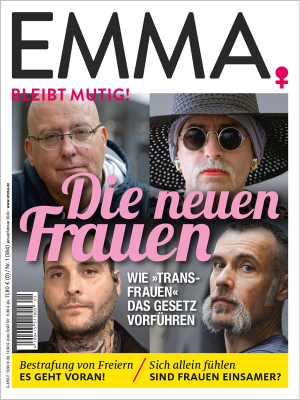Feminist Europe, Book Review: Women's
The transformations and upheavals are gripping to read about from today's per-spective. While at the Start [of the women's movement] debate focused especially on the integrity of the female body and thus on the right to abortion, topics such as sexuality and identity, work and love, and (sexual) violence against women have dominated since the 1980s.
Plain Language. The topic "Women and the Military" is certainly not a new po-litical subject in the 1990s; the author presented food for thought about this already in 1978. For me, her reflections on the TV-conversations with Esther Vilar and Rudolf Augstein and the TV talk-shows with Klaus Löwitsch and Verona Feldbusch are among the high points of the book, since more than thirty years of debate culture is revealed here.
Even though my view of relations signments. For this, the between the sexes is far less rigid than the tivity of both women a one I have inferred from many passages in "The future is human." this book, it nevertheless presents a piece of women's history that was dominant, lived in and uniquely characteristic of the old Federal Republic. To me, it is very regrettable that Alice Schwarzer takes so little notice of the lives of women in the new federal provinces. The biographies, ruptures, and diverse experiences of East German women could have undergone the author's very personal interpretation via her feminist methodological orientation. These female experiences have, with few exceptions, been cut out. Thus—and I regret this most deeply for a book published in 2002—only one part of female history and female tradition of the Federal Republic is reflected.
Despite these limitations the book is recommended for all who are interested in lasting change and in investigating life patterns that continue to be ascribed to men and women. Feminist ideas and attirudes are concretely explained so that concepts can be understood in their historical dimensions. In her foreword, which is among the most noteworthy passages in the book, Alice Schwarzer identifies herseif as a universalist—however, her view of women and men is certainly not objective and her thinking and appraisals are mired in hierarchical models, from which she would like to free herself—seemingly insoluble contradictions in contradiction-filled debates.
The essay "30 Years of the Women's Movement," published in EMMA on 6 June 2001, contains key sentences such as "Women have no history." Much of that which is newly testified here breathes the spirit of former times and sprays a mist of the charm of old battles—really new ap-proaches are sorely missed. Nonetheless, I hope that Alice Schwarzer continues to raise her voice, continues to argue provocatively and with humor for a truly human way of cooperating because—and here I can only nod in agreement—women are not the better human beings. Rather, it is much more a question of creating a true gender democracy beyond all role expectations and as-signments. For this, the knowledge and crea-tivity of both women and men are needed. "The future is human."
By Ilse Nagelschmidt; Trans. Jeanette Clausen, Feminist Europe 2008. - Review of Schwarzer, Alice: "Alice im Männerland. Eine Zwischenbilanz". [Alice in MrLand. An Interim Appraisal by Alice Schwarzer] Kiepenheuer & Witsch, 2002.



































































































